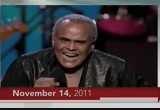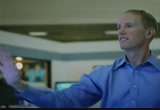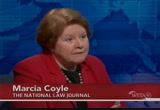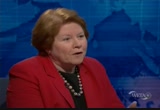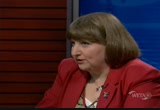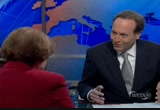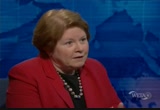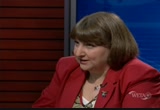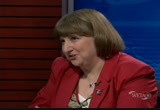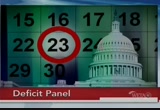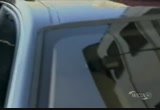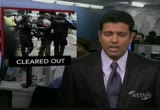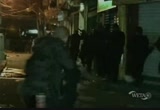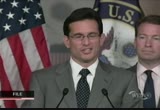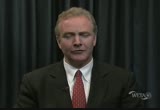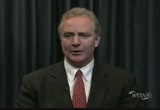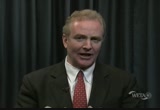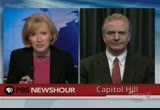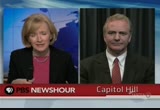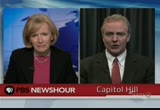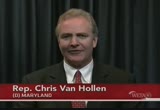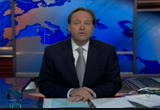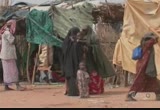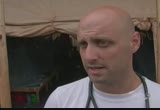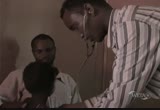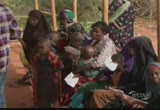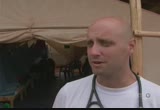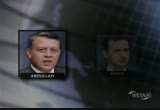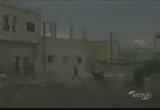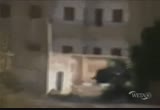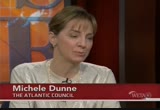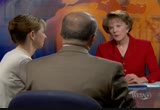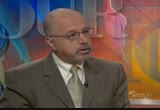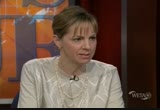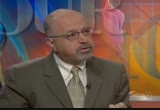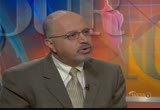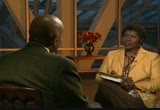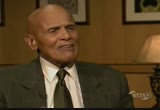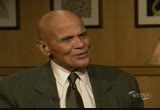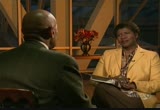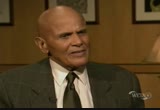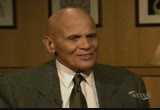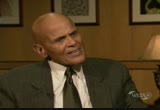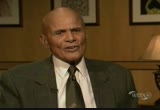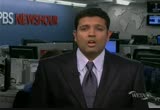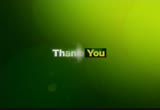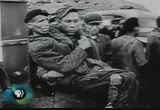tv PBS News Hour PBS November 14, 2011 7:00pm-8:00pm EST
7:00 pm
captioning sponsored by macneil/lehrer productions >> woodruff: the supreme court weighs in on health care reform, announcing it will hear a challenge from 26 states to the landmark law next march. good evening. i'm judy woodruff. >> brown: and i'm jeffrey brown. on the newshour tonight, we look at the constitutional questions and political implications with marcia coyle of the "national law journal" and npr's julie rovner. >> woodruff: then, we talk to maryland democratic representative chris van hollen about the stalemate in the congressional committee charged with reducing the nation's deficit, ten days before the deadline.
7:01 pm
>> brown: from ethiopia, special correspondent fred de sam lazaro reports on the exodus of somali citizens escaping the civil war and humanitarian crisis. >> it's here at the border that some 400 refugees arrive every single day, most of them women and children. most of them fleeing not just famine but fighting. >> woodruff: margaret warner examines the mounting pressure on syria's leaders from the arab world to put a stop to the violence. >> brown: and we close with gwen ifill's conversation with singer, actor and civil rights activist harry belafonte. >> i brought with me this mission of activism what attracted me to the arts was that i thought theater as a social force, as a political force. >> woodruff: that's all ahead on tonight's newshour. major funding for the pbs newshour has been provided by:
7:02 pm
moving our economy for 160 years. bnsf, the engine that connects us. from cars to retail signs to hospitals, creating new enriching experiences. through intel's philosophy of "invest you for the future," we're helping to bring these new capabilities to markets. we're investing billions of dollars in r&d around the globe to help correct the technologies we hope will be the heart of tomorrow's innovations. i believe that by investing today in technological advances here at intel, we can make a better tomorrow.
7:03 pm
chevron. we may have more in common than you think. >> and by the bill and melinda gates foundation. dedicated to the idea that all people deserve the chance to live a healthy, productive life. and with the ongoing support of these institutions and foundations. and... this program was made possible by the corporation for public broadcasting. and by contributions to your pbs station from viewers like you. thank you. >> brown: it was president obama's landmark domestic policy achievement, and now it will likely be the supreme court's biggest case of the term. today the justices agreed to hear arguments next spring on the constitutionality of the patient protection and affordable care act, the health care reform law passed in 2010. it's been challenged by 26 states. at issue is whether congress has the right to require citizens to
7:04 pm
purchase health insurance or pay a penalty if they don't. we look at the court's decision to take the case and the legal and political issues it raises with marcia coyle of the "national law journal" and julie rovner, who covers health care for npr. welcome. >> thank you. >> brown: the court agreed to take up several issues today. start with the key one, the mandate. and a decision in the 11th circuit court of appeals. what exactly will they look at? >> the challenge to the mandate which is essentially minimum coverage provision is that congress exceeded its power under the commerce clause, under which it regulates economic activity among the states. the opponents, which are the state... 26 states attorneys general here, they claim that a decision not to be insured is not economic activity, it's inactivity. it's nothing. people are not in the health insurance market which congress can regulate under the commerce clause. the government counters there's no inactivity/activity
7:05 pm
distinction in the commerce clause. people who don't have insurance do substantially affect inter-state commerce because eventually they will need health care. those who are insured will pay for that health care. >> brown: the larger critique is where are the limits to what the federal government can do? if they can do this, they can do anything. >> exactly. that has been one of the arguments, one of the points that the government has struggled with in the lower courts. we've heard opponents of the law saying, well, if government can do this, they can order us to eat broccoli. but the government says that that is is sort of a red herring, that congress can legislate for the general welfare here. that's what it has done. >> brown: julie, remind us how the mandate fits into the larger health care law and what other parts of it might be at stake. >> of course the law is much larger than just the mandate. the mandate is often referred to as the lynch pin of the law. indeed it's probably the lynch pin for the expanded coverage part of the law. the part that will allow many more people, up to 32 million
7:06 pm
more people to get health insurance. indeed if the mandate were to fall, it would probably almost certainly take with it other provisions, even the government has said it would probably take with it the part of the law that requires health insurers to accept everyone who applies and require health insurers to accept people who have pre-existing health conditions. but it could well not take with it other pieces of the law that are already in effect that allow 26-year-old or young adults up to age 26 to stay on their parents' health plans. that's closing the donut hole in medicare where seniors can get low cost prescription drugs, that have to do with public health expansions, that have to do with increasing the supply of health care professionals, that there are many many other provisions of this law that would likely, likely i say remain unaffected. >> brown: a lot of them are already in effect. >> many of them are already in effect. some of them are coming online in later years. they are tenuously related to this mandate. that's another of the things
7:07 pm
that the court will be looking at as they go into this five-and-a-half hour oral argument on this law. >> brown: five-and-a-half hours. that's a little unusual in itself. >> very unusual. in fact the court in modern times really has been having one hour of oral arguments. usually it has two cases in the morning and it's done. in this case it's likely to extend over two days. >> brown: to julie's point, what are the options for the court here in terms of what it can do? >> okay. well, it has several questions to answer. it has one big one even before it gets to the individual mandate. and that is whether it has the authority to even answer these questions. there's an 1800s law that bars courts from hearing tax challenges before a tax takes effect. the penalty for not buying insurance doesn't take effect until 2014 and wouldn't show up on your tax return until 2015. so the court has to first answer, do i have the
7:08 pm
authority.... >> brown: they might just say it's not right yet to come back later. >> one federal appellate court has already said that. after they deal with the individual mandate if they strike it down, as julie pointed out, they have to decide whether the whole law falls or whether the mandate is severable, whether it can just strike down the mandate. finally there is a very surprising question. the states have said that the provisions expanding medicaid, which is the federal state program for the poor and disabled, that they unconstitutionally coerce states into participating because the conditions, federal funds on their participation. >> brown: this was a surprise, the medicaid, that that was part of this. >> this was a surprise. this appeared only in this case in the 11th circuit. in fact this is what mainly the 26 attorneys general were suing about. they also sued over the mandate but in fact it was
7:09 pm
really the national federation of independent business that got the standing to sue on the mandate what the attorneys general were still on the case about is this medicaid question. what they're saying is that it's become coercive that if the states don't pay their share of this expansion of medicaid-- and it's a very large expansion to about 16 million people-- then the federal government could then pull all of their medicaid funding. so the states either have to do this or the states would lose all of their federal medicaid funding. even the judge, the lower-court judge in this original case said he didn't buy that. this was the judge i might point out who struck down the entire law, who said that because that one individual mandate provision was unconstitutional the entire law must fall. he said that this medicaid provision, what the states were arguing that that medicaid provision was coercive, he said he didn't think to. >> brown: it wasn't surprising that the court took it up. the timing looks like sit a decision perhaps in june plunged into the middle of a political campaign. >> plunged in the middle of a
7:10 pm
political campaign. normally what you see with these big important supreme court cases is that the losing side is the one that gets all the sort of the mo-jo if you will. we saw when roe v. wade was decided in 1973 that even though that was a win for the abortion rights side that really created the modern day anti-abortion movement. you tend to see all the energy going to the loser. i'm not sure that would necessarily be the case this time. that you know if president obama's, you know, signature domestic achievement were to be struck down that he would necessarily be sort of considered the one to get all the energy. so it's really hard to tell how this would play out depending on how it goes. >> brown: a brief last word. was it surprising to see the court jump into the political component like this at such a crucial time? >> no. the court almost had to take this case. whenever a federal law is is struck down, as unconstitutional, i don't think the court has ever turned down a request by the solicitor general of the united states to hear that case. so it was inevitable. >> brown: we're going to see the argue arguments later on.
7:11 pm
ideologically speaking this is hard to parse. >> this is very hard to call. about a decade ago, the supreme court started becoming less deferential to congress. the most recent commerce clause case in 2005, it shifted again more deferential to congress. so i don't know. it's a new court. we have four new justices. we'll have to see how it plays out. >> brown: we will. marcia coyle, julie rovner, thanks both very much. >> you're welcome. >> woodruff: still to come on the newshour, the looming deadline for the super committee; somalia refugees fleeing somalia; growing pressure on syria; and actor, singer, and activist harry belafonte. but first, the other news of the day, here's hari sreenivasan. >> sreenivasan: new leaders in both greece and italy moved to form governments today. both will have to persuade voters and financial markets to support their efforts to prevent europe's debt crisis from spreading. we have a report from gary gibbon of independent television news.
7:12 pm
>> reporter: over the weekend berlusconi waved good-bye to office and to imaginary supporters. most of the crowd here was anything but supportive shouting, "go to jail" and thanking god for his departure from office. ♪ hallelujah >> reporter: the new prime minister emergeded from the hotel that berlusconi wouldn't be seen dead in. he's still trying to form a government that he hopes can last for 18 months. the new man in place did manage to shift three billion euro of government debt on the market today. the new lousy euro zone record 1% up on just last month. in spain where anti-banking protestors have been on the streets, the price of spanish government debt entered the danger zone going above 6%. it's not clear whether greece's parliament will back the new burrus he wills-approved
7:13 pm
prime minister. he leads the support of the main opposition right wing party. the leader is tonight refusing to sign an e.u.-imf pledge and is itching for an early general election. the german chancellor angela merkel implied euro zone countries would have to take a lot more austerity measures. she said to survive the euro needed member states to move to economic union matching tax-and-spend policies. "europe is in one of its toughest, perhaps the toughest hour, since the second world war," she said. "the euro fails, then europe fails. we want to prevent and we will prevent this." the technocrats angela merkel wanted in power in athens and rome are in place. it's not clear how long they'll last or if the markets will give them even a moment to try their policies. >> sreenivasan: the situation kept wall street on edge today.
7:14 pm
stocks drifted lower amid concerns that the new governments in greece and italy face huge challenges. the dow jones industrial average lost 74 points to close just under 12,079. the nasdaq fell 21 points to close at 2657. before dawn today, police in oakland, california, cleared an encampment of anti-wall street protesters. officers in riot gear moved in to empty the area in front of oakland city hall. they cleared away tents that had been set up for weeks. at least 32 people were arrested. mayor jean quan said shutting down the camp was necessary after a man was murdered nearby last week. >> we're asking everyone to respect my city's decision to close the encampment, even if we support the movement. i'm asking you to not engage in destructive acts. i'm asking you to respect what now has become i think an overwhelming sentiment in the city that you can divide the movement from the encampment, and that we start to work together on the issues that
7:15 pm
unite us and not divide us. >> sreenivasan: a similar scene took place in portland, oregon, overnight, where thousands of protesters were cleared from their encampment. more than 50 people were arrested there. in brazil, more than 3,000 police and soldiers have taken over the country's largest slum, in a new bid to curb the power of drug traffickers. early on sunday, armored vehicles rolled in to a section of rio de janeiro where a heavily armed drug gang had run things for years. units made their way through narrow streets, seizing the town in just an hour and a half without firing a single shot. it's all part of a campaign to increase security before the city plays host to the 2014 world cup and the 2016 olympics. 10% of all adults in the world could have diabetes in less than 20 years. the international diabetes federation made the prediction today, based on aging and other factors. the advocacy group estimated that by 2030, there will be 552 million cases of the diabetes worldwide. currently, 336 million adults
7:16 pm
are diabetic. that's about one in every 13. those are some of the day's major stories. now, back to judy. after more than three months of work, and with a deadline nearing, the congressional panel charged with finding ways to cut the nation's budget deficit seems stuck in neutral. >> woodruff: ten days to go and there are still no signs of major progress on the deficit reduction super committee. but house majority leader eric cantor said today he's confident there will be agreement. and president obama is now appealing to both sides to show greater flexibility. he spoke sunday in hawaii where he's attending the asia pacific summit. >> my hope is that over the next several days the congressional leadership on the super committee go ahead and bite the bullet and do what needs to be done. because the math won't change. >> woodruff: on friday the
7:17 pm
president also telephoned the group's democratic and republican co-chairman. the super committee was set up after the summer's contentious debt-ceiling debate. with an equal number of members from both parties in the house and senate. they were given a deadline of november 23. by that time, they are supposed to agree on slashing at least $1.2 trillion from deficits over the next ten years. if they fail, it triggers automatic cuts in defense and domestic spending, beginning in 2013. so far the super committee remains divided down party lines on how to agree on a mix of tax increases and cuts to spending and benefit programs. on sunday the super committee's republican co-chair talked of compromise on raising revenue, without deciding exactly how. >> there could be a two-step process that would hopefully give us pro growth tax reform
7:18 pm
which by the way every other bipartisan effort that has said that some revenues have to be raised are being raised in this method. >> woodruff: on the other hand, democratic congressman james clyburn of south carolina acknowledged that members of his own party can't agree among themselves. >> there are six democrats on this committee. though i have a great deal of admiration with respect to all of them, the fact of the matter is democrats have not coalesced around a plan. >> woodruff: one thing both sides can agree on: there's still much work to be done. republican senator pat tomby of pennsylvania. >> it's at a difficult point. i think we have a ways to go but i hope we can close that gap very quickly. >> woodruff: from the public's perspective, it can't happen quickly enough. a new politico george washington university poll finds 69% of those questioned think the super committee will fail in its mission to cut the
7:19 pm
deficit. >> woodruff: democratic representative chris van hollen of maryland is a member of the joint select committee on deficit reduction or super committee. he is also the ranking democrat on the house budget committee. i spoke with him earlier this evening. congressman von hallen, thank you for talking with us. >> great to be with you, judy. >> woodruff: this new poll out showing that more than two thirds of the american people believe the super committee is going to fail to reach an agreement. are they likely to be proven right? >> well, we're hoping to prove them wrong. i understand the sentiment of the american people. they've been watching a congress that doesn't appear to have been functioning the way it's supposed to. we're trying to overcome a lot of those hurdles. we know that we've only got ten days left and the clock is ticking. we're working hard to try and get an agreement. >> woodruff: how close are you? >> we're still not close. but we continue to have talks. we continue to explore every way to try and bridge some of these differences.
7:20 pm
look, at the end of the day, an agreement is going to require a compromise. it's going to be a process of give-and-take. it's going to have to be an agreement where nobody is entirely happy with the result, but everybody is happier with the result than with the alternative. we recognize that. we're trying. >> woodruff: are both sides compromising at this point? >> well, as you probably know from public reports the democrats put a very ambitious plan on the table that included some very significant cuts and reforms as well as revenue. it met the test of balance as set out by other bipartisan groups like simpson bowls. i have to say that we have not seen that kind of plan from the other side that is both balanced and also helps on the jobs front and the economy. >> woodruff: but we know from reports or at least it is reported that the republicans have moved off their anti-tax position enough to propose $300 billion in new taxes as
7:21 pm
part of a $500 billion package. why isn't that acceptable to the democrats? >> well, judy, i think everybody needs to understand that if the deficit committee, the joint committee never existed, that at the end of next year the folks at the very top of the income scale would go back to paying the rates they were in the clinton administration. that would mean $800 billion in revenue coming in. what some of our republicans want to do is say, we're not going to allow that $800 billion to come in. in fact we'll lock in tax breaks of $550 billion for the folks at the top. by the way the price you have to pay for that is to bring down the top rate to 28% which will mean that middle class tax payers face a greater tax burden than the folks at the top. that's just not fair. >> woodruff: you're saying that's a non-starter. >> i'm saying that's not fair. i should point out that every other bipartisan group has assumed that this $800 billion from the termination of the
7:22 pm
bush tax cuts on the folks at the top as part of their starting point as part of their baseline. that $250 doesn't even get you into the starting gate in comparison to what the other bipartisan groupsçó have done. look, discussions continue. we're all trying to find a way to make this work. we're not giving up. >> woodruff: there is a report that you are looking at a so- called escape hatch, a two-step process where the committee would agree to a revenue level but you would leave it up to the standing committees of congress next year that work on tax writing to do the harder work of coming up with the actual tax-and-spending changes. is that under consideration?ñiú >> there is some misinformation about that. to make the two-step process meaningful there have to be consequences if the committees do not hit a target that is set. for example if it's a revenue target and through that normal
7:23 pm
process the committees don't reach it, you should have an enforcement mechanism to make sure you get the revenue. the same thing should be true on the cut side. to make it meaningful from a deficit-reduction perspective, you need to have real consequences just like there are consequences if this joint committee fails. if we fail, then you're going to have that automatic see questions trags. if you set up another process, there need to be specific, measurable consequences if the committees don't hit their targets. >> woodruff: there's also reporting that there are efforts to get around the so- called sequester wherein you would undo the penalty of these automatic cuts if you don't reach an agreement. is there truth to that report? >> there are certainly people who say they want to get rid of the sequester. if you want to get rid of the sequester you're not serious about deficit reduction because if you get rid of the sequester, the deficit of the united states will automatically jump by $1.2 trillion according to the
7:24 pm
accounting here. so undoing it and talk of undoing it simply means you're trying to escape the choices. for example, one of the choices people face is do you want to close tax loopholes in order to make sure the defense sequester doesn't take place? let's make that decision now. don't try and undo the sequester and the enforcement mechanism. >> woodruff: how worried are members of the super committee, congressman von hallen, about the reaction in the financial markets if you don't reach an agreement? >> i think people are legitimately concerned about that. we're concerned about the reaction of the american people. saying, lookq can't get something done. we're worried about the reaction in the markets at a time when you have a very fragile economy. and we're worried about the impact of the sequester which is across the board arbitrary cuts. so all those things motivate members of the committee to try to reach an agreement. i'm hoping that in the next ten days we're able to do
7:25 pm
that. >> woodruff: you want to lay odds on whether it will happen and are you convinced that every member of the super committee is trying to come up with a plan that can be broadly... that can reach agreement? what is it? out of the 12 you only need seven. of course somebody would have to break ranks with their party for that to happen. >> in terms of the odds it's been such a roller coaster ride. it's hard to prooe ticket. at one moment i'm hopeful. the next moment i'm frustrated. sometimes there's light at the end of the tunnel. we're just going to have to wait and see. with respect to the 12 members, you know, the ultimate question for committee members is are you ready to do something that is politically difficult? because we'll know we're successful if, frankly, both sides are unhappy with an agreement but, as i said earlier, recognize that it's better than no agreement at all. obviously there are going to be some agreements for which no agreement will be better in some people's eyes.
7:26 pm
and so that's the balance we have to strike. we're hoping that we can get an agreement that meets the two tests that i think every american would like to see met: one, do something about the economy and jobs. two, it should be balanced. meaning that there should be shared responsibility for getting the deficit under control, just like all the other bipartisan groups have done. >> woodruff: representative chris van hollen, thank you very much. >> thank you. >> brown: >> brown: we've extended invitations to all of the republican members of the super committee. none was available this evening. we hope to bring you an interview with one of them this week. >> woodruff: now, deepening conflict and famine in east africa. kenyan troops have been drawn into the civil war in somalia between the government and the al qaeda allies, the al shebab. starving somali refugees are seeking their escape via ethiopia.
7:27 pm
from the rege ne mpcaear dolo on the ethiopian border withmp somalia, special correspondent fred de sam lazaro has this report. >> reporter: it's here at the ethiopia-somali border that some 400 refugees arrive every single day. most of them women and children. most of them fleeing not just famine but fighting. with normal escape routes to ken i can't virtually closed by escalating conflict the exodus of somali civilians has moved west to ethiopia. we ran into acar adunn who has walked for seven days to get to the ethiopia line. she had first come a few weeks earlier but went back to somalia to fetch four of her six children. she hopes her husband with the two others will soon follow. >> i just went back to sell the remaining animals. there's nothing to eat. there's a drought. a while back there was fighting. now there are government soldiers there but there's
7:28 pm
nothing to eat. >> reporter: when did she last eat? >> we had some tea earlier today. some lady gave it to us as charity. >> reporter: she was heading first toward a reception center about a mile further in where the ethiopian authorizes register newcomers. with care pangages moved to an increasingly cramped transition area. until recently the average stay here was about a week. but with regular camps at capacity, the wait has been getting much longer, says dr. benjamin levy a michigan native who has been here for eight weeks with the group doctors without borders. >> there are currently 6,000 people that are waiting to be placed in a refugee camp. they've already crossed the border. they've already come for help. they're currently not receiving much more than rudimentary help. they're planning to open another camp. that is at least a week if not several weeks out.
7:29 pm
>> reporter: so far the number of somali refugees who have landed here in ethiopia is around 135,000, and it's growing. we're in a camp that is the fourth camp that was built to accommodate them. it's filled to capacity. this camp is 21 miles from the border. it looks on the outside like any dusty, small town in rural africa. life goes on in the little shops that offer food items. tailoring, and battery charging. cell phones are abundant but not electricity. to get a keener sense of what people here have been through, dr. levy says come to the camp's make-shift hospital. >> our mortality rate at one point was approaching 10%. which in a census of 60 to 80 children means we were losing approximately one child a day. >> tell her we'll try giving her thicker milk today. i would like to try to get her to see if she's willing to drink it by mouth. >> reporter: that rate has gone down a bit but many of
7:30 pm
his patients struggle to hang on. this child is three years old. she weighs had 14 pounds. from tube feeding like she's receiving to the protein-rich plumpy nut paste given to those who can still eat, nurses and doctors try to rebuild the withered bodies of dozens of children each day. >> the malnutrition is the underlying problem, but the children that we bring within the hospital typically have very se rear... severe diarrhea ten to twenty times a day, very severe chest infections, pneumonia in both lungs. >> reporter: they keep coming. twice as many refugees streamed across the border in october as they did in september. for them, this seems like a promised land. this person survived a perilous 12-day donkey cart ride including close encounters with the al qaeda linked terror group al shabab. >> when we reached the place inside somalia there were
7:31 pm
shabab fighters there. they started to fight with the government troops and captured a lot of guns and ammunition and slaughtered a lot of young people. after that nobody was allowed to bury them. in the end people threw their bodies in the river. >> reporter: for now he, his wife and five children squeeze into a tiny tent. yet it's the first time in years that they've had adequate food and shelter in relatively peaceful surroundings. he quickly took advantage of the medical care being offered. his four-year-old daughter suffered a respiratory infection and got a prescription for an antibiotic. but he and everyone else here wonder what comes next? >> a lot of problems forced us to come here. now we are here. as for the long-term future, me and my children we don't know anything about education. we don't read or write. we need to be educated. we need to be sent to south
7:32 pm
africa or america to get some of these facilities so that we can catch up with the rest of the world. but there's no way we can go back to somalia. >> reporter: resettlement to third countries could be years away. canada, britain, the u.s., and scandinavian countries have taken in large numbers of somali refugees in recent decades. for now the challenge for the u.n.'s world food program is to raise funds to sustain the camps here and in northern kenya. so far assistance including 650 million in cash and kind from the u.s. government has stocked the warehouses and critical supplements like this high calorie pre-mixed powder. this person is an aid group contracted by the u.n.. >> fortified food to just boost people's nutrition. >> reporter: is it meant for children. >> this is meant for children, yeah. children under five.
7:33 pm
>> reporter: there's enough supply to last through 2012 and the world food program has begun seeking donations for later in the year. it's a challenging task for a region that's been chronically distressed and in need for years. program spokesman. >> i can understand where the concerns comes from. it's challenging to show a real needs of the somali refugees. because of the displacement is induced by drought. that doesn't show in the news camera lens. the it's not as appealing as the damage of an earthquake can show. somalia and the somalis fleeing to the neighboring countries have been an issue
7:34 pm
in the media already for several decades. >> reporter: for his part the doctor says things seem precariously under control in these camps but he's preparing for the worst. the news that kenyan forces have entered somalia to fight against al shabab militants has made the situation more complicated. >> my understanding is that the camps in kenya had seen a decrease in the number of people that they are seeing, even as the fighting across the border increases. we're wondering, does that mean that the people who want, you know, who need to come or want to come have come or does that mean that people are so entrenched and terrified that they are unable to leave at this moment and as soon as the fight lets up, a new group of people will come across the border? the situation is absolutely far from resolved. >> reporter: for both providers and refugees planning is done on four
7:35 pm
horizons with smaller victories, a smiling child, a relieved mother.e1 >> brown: fred's reporting is a partnership with the "under-told stories project" at saint mary's university in minnesota. >> woodruff: next, arab nations step up the pressure on syria, where a bloody crackdown on dissidents has left at least 3,500 dead since march. today, jordan's king abdullah called on president bashir al assad to quit. abdullah's statement follows saturday's overwhelming vote by arab league nations to suspend syria's membership. syria denounced the vote as western-inspired. we begin our coverage with a report by john ray of independent television news. >> reporter: still it is the government's guns that answer the call for change.
7:36 pm
and circled and under fire, it shows the city of homs today. but the crackdown cannot drown out an almost complete chorus of international condemnation and now isolation. stunned by their suspension from the arab league, syria's foreign minister denounced the move as shameful, malicious, and dangerous. the violence seems unending. few are the signs the regime is willing to compromise, and now there is is fresh intet us to tighten sanctions. >> i think it's very good that the arab league is taking a leading role on this crisis. it's very important in the european union that we consider additional measures to add to the pressure on the assad regime. >> our goal here is to increase pressure, economic pressure, on assad, and political pressure on assad. so actions that would help up
7:37 pm
that pressure or increase that pressure we believe would be beneficial. >> reporter: as protests continue to an 8th blood-soaked month, king abdullah of jordan has joined calls for president assad to step down. among his allies only russia and iran appear to be holding firm. >> things are escalating. there are certain measures we are requesting that will squeeze the regime economically and financially to bring this whole atrocity and massacre to an end. >> reporter: no one can tell if the regime is close to cracking. but as security forces continue to round up opponents, activists posted this video online. they say that the syrian police are defecting to join an opposition that increasingly is armed and ever more determined. >> woodruff: margaret warner takes the story from there. we're joined by michelle dunn formerly at the state
7:38 pm
department and national security council, now director of the atlantic council's middle east center. and shibley telhami, a professor of government and politics at the university of maryland. he conducts public opinion surveys in the middle east and has just returned from a polling trip there. welcome, both of you, back to the program. first let's start with today's news, michelle dunn. king abdullah saying if he were assad he would be stepping aside right now. why would he speak up now? >> well, i think for king abdullah, first of all, syria has always viewd syria as more of a threat than a friend to jordan. he's responding to public opinion within his own country that is against the syrian regime and also to saudi arabia. jordan is extremely close to saudi arabia, and the saudis have now taken a pretty hard stance against the assad. so king abdullah is placing himself in alignments there. >> warner: which takes us then to the arab league vote, shibley telhami. on saturday most accounts
7:39 pm
called it unexpected. what explains the arab league taking on essentially one of its core members? >> well, it's interesting because it was unexpected. i mean arab league is usually very conservative on those issues. when it took a position on libya it was seen to be an exception to the rule. so this was very unusual. but there are two things going on here. one is a lile bit of score settling particularly among the powerful members of the arab league at the moment against the gcc, particularly gts. >> warner: the gulf cooperation council. but there is public opinion. everybody is terrified by public opinion. if you look at the way the sentiment has changed over the past year, there's no question that it has soured on the syrian government. in the case of jordan in particular, i just received the public opinion poll from jordan that i'm releasing next monday. a pig public opinion poll. the jordanians are opposed to taking the side of the demonstrators in the
7:40 pm
government in syria. everybody is nervous about that. i think they're responding just like everybody else, every government is trying to respond. the arab league is trying to respond even though it is a league of arab states. >> warner: this is a group of nations that has never been hugely responsive to public opinion in the past, and they often have not spoken out against atrocities by fellow members. is this all a result of the arab uprising? because they're all nerves now about their own positions? >> very much so. i think that they are concerned about public sentiment in the region and not showing themselves to be too much out of step. i think they are... the arab states are also concerned about a changing strategic regional picture. you know, the interesting thing here is that the arab leaders are... they're placing their bets against assad. they seem to think he's going to go. they want to be on the right side of that. and have syria alignd with them. no longer with iran and not
7:41 pm
with turkey, for example. they want to have syria with the arab states if fls going to be a new syria. >> warner: is the iranian-syrian competition for influence in the region, shibley telhami, part of the underlying some strategic calculations for some of these countries? >> no question. when i say score settling, it's part of the strategic score settling. you have to take syria into an historic perspective. dating back to the 1980s, the war between iraq and iran where most of the arab states supported iraq, syrian was the only one who took iran's side. obviously there's been a strategic relationship between iran and syria. the hezbollah factor in lebanon is a huge factor for some of them. >> warner: supported by the syrians. >> especially the saudis where there's a lot of competition. it's interesting because in lebanon itself, you know, the public is very divided on syria. >> warner: let me go on to the effect this is likely to have.
7:42 pm
a lot of the arab league officials said we're not trying to do that we were trying to do with libya. we're not trying to set the stage for international ver... intervention, but could it lead to that? >> first of all, they are trying to get the syrian opposition a little bit more unified. they've invited the syrian opposition leaders to come to cairo and have some conversations with the arab league because there's still a significant rift between the opposition inside and outside of syria and between civilians and those who left the syrian military. so that's an issue. but i think the arab league decision will maybe have more effect outside of syria. for example, there's the question of whether turkey will place economic sanctions on syria, whether the arab league states will and whether russia and china will now come under more pressure to go along with other members of the international community, for example, in a u.n. security council resolution
7:43 pm
against syria. >> warner: but if assad defies this latest pressure move, then what if the arab league... what does the arab league do next? they're taking a bit of a gamble here that they are calling assad's bluff but he could turn around and call their bluff. >> a slippery slope. the problem for them too is that while arab public opinion is decidedly against assad they don't want to see international intervention in syria. >> warner: because? and why? >> because of the... there is still very deep suspicion of the intention of international intervention. even in, you know, in my polling i asked the question of whether they think the intervention in libya in retrospect has been a good one or not. in jordan and lebanon they're still divided on this one. they're still suspicious of the international intervention. there is a problem. however, if you take aside the libya intervention you can imagine, for example, a safe haven type intervention. that's the kind of incrementalism that could be... don't think libya model.
7:44 pm
think a different model. i think eventually if the killing continues i see an escalation that will lead to some kind of international sdep in syria. >> warner: very briefly. we have only have about 0 seconds. what impact is this going to have on assad? >> i don't think he'll respond to this. he hasn't responded to a lot of other initiatives so it makes him more isolated but i don't expect to see him changing his tax ticks towards the uprising because of this. >> warner: what do you think? >> the real interesting question is what his elders will do, the people who are around him. are they going to throw him under the bus at some point like the egyptian military through mubarak under the bus. that's the interesting question. for now they've decided not to do so. >> warner: thank you both. >> brown: finally tonight, a conversation with a musical icon and lifelong political and social activist.
7:45 pm
gwen ifill has that. >> ifill: at 84, harry belafonte has already lived several lives. as an actor, a television personality, a movie star, and as a high-profile civil rights activist. >> ♪ i took a trip on a sailing ship and when i reached jamaica, i made a stop ♪ >> ifill: his singing shapeded a musical consciousness for generations of americans. ♪ >> ifill: from traditional folk music and spirituals... ♪ ... to caribbean calypso and protest songs. and his activism took him to the front lines of the civil rights movement, marching with dr. martin luther king jr. lobbying for the release of an
7:46 pm
imprisoned nelson mandela. ♪ and joining other stars to raise money to ease famine in africa. he has now written it all down in "my song." i sat down with him recently at the smithsonian museum of natural history. harry belafonte, thank you for talking with us. >> i'm so tickled to be here. >> ifill: you define yourself as an actor and a singer and an activist. put those in order for us. >> i was an activist who became an artist. my activism really started the day of my birth. born from immigrant parents in new york city, my mother was overwhelmed by america. she came here with hopes and ambitions that were never fulfilled. and she was bringing children into teleworld at an age that was much too young. although she stayed the course and cheated... treated us with
7:47 pm
great dignity and care, it overwhelmed her and she took us back to the west indies to have us raised by the village and the family that she grew up in. and in 1939 i came back. during that time there was a lot of talk about white supremacy and hitler and democracy and america mobilizing for this great campaign. the whole world was caught up in it. we were listening to people speaking about the black relationship to this world struggle. i was filled with this stuff in our community. it was nothing to walk down the street any day and see joe lewis in harem. our role models were always there. by the time i came up with the idea of being an artist i brought with me this mission of activism. what attracted me to the arts was the fact that i saw theater as a social force, as a political force.
7:48 pm
i kind of felt that art was a powerful tool. that's what i should be doing. >> ifill: your options could have been jazz and pop. you know, you were bigger than elvis at one point people forget. instead you chose world music and calypso and folk songs, protest music. did you consciously choose that? >> i eventually consciously chose it because since i didn't sound like ella fitzgerald and didn't have anywhere near her musical kbek and listening her do pop music and jazz was the quintessential goal for any artist. i looked at her and said i'm on the wrong end of this business. >> ifill: how did you get to know martin luther king jr. and how did that relationship progress? >> dr. king called me. he said that he had heard about me and he heard that i was an artist with a deep sense of social commitment. he wanted to talk to me because he was trying to recruit forces to helm... help
7:49 pm
him on this mission that was overwhelming him. he said, "i have this charge. i have this responsibility. i'm not quite sure i know where i'm going or how i'm going to handle it. but i do know one thing. i need to do it in the context of friends and people around me who could help us move this monster along the highway of life." as we spoke, sitting down in the basement of the baptist church in harlem, i listened to him. i was deeply moved by what he had to say. i knew at the end of our meeting that i would be in his service. >> ifill: does he have a legacy that survives now in 2011? >> i believe there's no question about that. i think that when you go to north africa and you see what's going on, you would be amazed how many of the young people talk about dr. king, talk about non-violence, what americans did. the fact that non-violence is central to all these current
7:50 pm
upheaveals including here in the united states, one can say that the legacy did not die. >> ifill: in your life you had bonded with world leaders who are considered hostile to the united states including fidel castro and hugo chavez, and i wonder whether thatg# in retrospect has helped or hurt your cause.ñié@ >> i would rather have done without the flak but knowing what my mission has been and how i feel i'm not sorry that i have met any of these men, that we've had exchanges and encounter. i don't approve of everything we've ever done but i think talking to them is if best thing we could do and should do. i think we have a failed foreign policy. any private citizen who can evoke his rights to go out and talk and try to maintain some equilibrium, peoples who have really done us no harm although i've taken a lot of heat for what i've said. i've said everything that i did consciously. i expected heat. it kind of gave me a platform
7:51 pm
to speak about things that nobody wanted to talk about. i'm very proud that i did those things. i think in the end most of the people who are demonized as communists and anti-americans, one of them being dr. king, now have a holiday. when i worked with nelson mandela in his earliest years in prison and working for the liberation of south africa he is considered one of the great ter terrorists of the world. my company hasn't been all that bad. i think those who anointed me as being villainous and not a patriot, they have to go back and exam history again. >> ifill: the book is my song. i want to end this by reading to you something that you wrote at the end of the book. you said i was a good singer but i wasn't the best. i had known that from the start. i had to rely on my acting. in the end i could make a case that i was the greatest actor in the world. i had convinced everyone i could sing. was that a trick?
7:52 pm
did you just convince us you could sing? >> no. because the first time i ever started singing for the public was in a play. written by john steinbach called "of knights and men." they had a character who sing the songs of the period which was the sduft bowl and the great depression. here i was singing as an actor, not looking the life of singing as a career. then when i decided to get back to singing or to take it on as my goal, i remembered everything that i did as an actor. and every song i've ever approached i approached with the drama that was inherent in the lyrics and how it impacted upon the audience emotionally. and the banana boat i came from the caribbean which was the biggest song ever in the world. if you don't believe me, just ask anyone at yankee stadium and see what the fans have to say. but here was a song about struggle, about black people
7:53 pm
in a colonized life doing the most grueling work. i took that song and honed it into an anthem that the world loved. someone said to me when he heard me in my earliest years said get them to sing your song and they'll want to know who you are. and the whole world was singing banana boat. i didn't really understand how powerful i was until i stood before an audience of 50,000 japanese trying to sing it. yeah! i've arrived. >> ifill: i would say you've managed over the years to sing your song. harry bell fant oh, thank you very much. >> thank you very, very much. >> brown: again, the major developments of the day. the u.s. supreme court agreed to hear a challenge from 26 states
7:54 pm
to the landmark health care reform law. and with ten days to go, there was still no deal in sight on congress' deficit supercommittee. on the newshour, democratic congressman chris van hollen said panel members are "legitimately concerned" about what the markets will do if there's no agreement. online, we have a story about the government crackdown in a poor brazilian neighborhood, ahead of the 2014 world cup competition. hari sreenivasan explains. hari? >> sreenivasan: our partners at globalpost are on the scene in rio de janeiro's largest slum. find a link to their coverage on our world page. health correspondent betty ann bowser has a blog post about the high price of daily life in alaska. her report about dental care in remote parts of the state is slated to air later this week. plus, economics correspondent paul solman talks to former f.d.i.c. chairwoman sheila bair about her newest project, a children's book on saving money. that's on our making sense page. all that and more is on our web site, newshour.pbs.org. judy?
7:55 pm
>> woodruff: and that's the newshour for tonight. on tuesday, we'll look at europe's debt troubles. i'm judy woodruff. >> brown: and i'm jeffrey brown. we'll see you online, and again hererooromw evening. thank you, and good night. major funding for the pbs newshour has been provided by: >> oil companies make huge profits. >> last year, chevron made a lot of money. >> where does it go? >> every penny and more went into bringing energy to the world. >> the economy is tough right now, everywhere. >> we pumped $21 million into local economies, into small businesses, communities, equipment, materials. >> that money could make a big difference to a lot of people. or bnsf railway.
7:56 pm
intel. and by the alfred p. sloan foundation. supporting science, technology, and improved economic performance and financial literacy in the 21st century. and with the ongoing support of these institutions and foundations. and... this program was made possible by the corporation for public broadcasting. and by contributions to your pbs station from viewers like you. thank you. captioning sponsored by macneil/lehrer productions captioned by media access group at wgbh access.wgbh.org
897 Views
1 Favorite
IN COLLECTIONS
WETA (PBS) Television Archive
Television Archive  Television Archive News Search Service
Television Archive News Search Service 
Uploaded by TV Archive on

 Live Music Archive
Live Music Archive Librivox Free Audio
Librivox Free Audio Metropolitan Museum
Metropolitan Museum Cleveland Museum of Art
Cleveland Museum of Art Internet Arcade
Internet Arcade Console Living Room
Console Living Room Books to Borrow
Books to Borrow Open Library
Open Library TV News
TV News Understanding 9/11
Understanding 9/11
